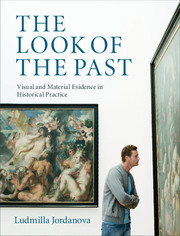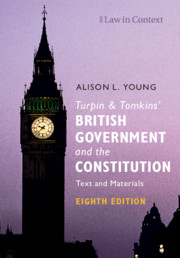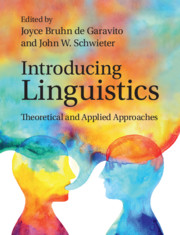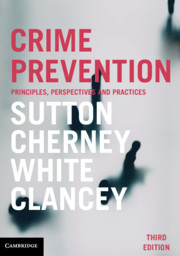Refine search
Actions for selected content:
36738 results in Cambridge Textbooks
1 - Introduction
-
- Book:
- Design Optimization using MATLAB and SOLIDWORKS
- Published online:
- 17 July 2021
- Print publication:
- 29 April 2021, pp 1-6
-
- Chapter
- Export citation
8 - Special Classes of Problems
-
- Book:
- Design Optimization using MATLAB and SOLIDWORKS
- Published online:
- 17 July 2021
- Print publication:
- 29 April 2021, pp 195-208
-
- Chapter
- Export citation
4 - Unconstrained Optimization: Theory
-
- Book:
- Design Optimization using MATLAB and SOLIDWORKS
- Published online:
- 17 July 2021
- Print publication:
- 29 April 2021, pp 59-78
-
- Chapter
- Export citation
7 - Constrained Optimization
-
- Book:
- Design Optimization using MATLAB and SOLIDWORKS
- Published online:
- 17 July 2021
- Print publication:
- 29 April 2021, pp 155-194
-
- Chapter
- Export citation
Frontmatter
-
- Book:
- Design Optimization using MATLAB and SOLIDWORKS
- Published online:
- 17 July 2021
- Print publication:
- 29 April 2021, pp i-iv
-
- Chapter
- Export citation
Appendix
-
- Book:
- Design Optimization using MATLAB and SOLIDWORKS
- Published online:
- 17 July 2021
- Print publication:
- 29 April 2021, pp 369-374
-
- Chapter
- Export citation
10 - Size Optimization of Trusses
-
- Book:
- Design Optimization using MATLAB and SOLIDWORKS
- Published online:
- 17 July 2021
- Print publication:
- 29 April 2021, pp 235-266
-
- Chapter
- Export citation
12 - Finite Element Analysis in 2D
-
- Book:
- Design Optimization using MATLAB and SOLIDWORKS
- Published online:
- 17 July 2021
- Print publication:
- 29 April 2021, pp 287-311
-
- Chapter
- Export citation
16 - Shape Optimization Using SOLIDLAB
-
- Book:
- Design Optimization using MATLAB and SOLIDWORKS
- Published online:
- 17 July 2021
- Print publication:
- 29 April 2021, pp 357-368
-
- Chapter
- Export citation

The Look of the Past
- Visual and Material Evidence in Historical Practice
-
- Published online:
- 24 April 2021
- Print publication:
- 27 September 2012
-
- Textbook
- Export citation

Turpin and Tomkins' British Government and the Constitution
- Text and Materials
-
- Published online:
- 22 April 2021
- Print publication:
- 01 April 2021
-
- Textbook
- Export citation

Introducing Linguistics
- Theoretical and Applied Approaches
-
- Published online:
- 22 April 2021
- Print publication:
- 21 January 2021
-
- Textbook
- Export citation

Crime Prevention
- Principles, Perspectives and Practices
-
- Published online:
- 22 April 2021
- Print publication:
- 23 February 2021
-
- Textbook
- Export citation
N ν
-
- Book:
- The Cambridge Greek Lexicon
- Published online:
- 05 August 2021
- Print publication:
- 22 April 2021, pp 955-976
-
- Chapter
- Export citation
H η
-
- Book:
- The Cambridge Greek Lexicon
- Published online:
- 05 August 2021
- Print publication:
- 22 April 2021, pp 655-670
-
- Chapter
- Export citation
Structure and Content of Entries
-
- Book:
- The Cambridge Greek Lexicon
- Published online:
- 05 August 2021
- Print publication:
- 22 April 2021, pp xi-xiv
-
- Chapter
- Export citation
Title match
Φ φ
-
- Book:
- The Cambridge Greek Lexicon
- Published online:
- 05 August 2021
- Print publication:
- 22 April 2021, pp 1451-1488
-
- Chapter
- Export citation
Title match
Ξ ξ
-
- Book:
- The Cambridge Greek Lexicon
- Published online:
- 05 August 2021
- Print publication:
- 22 April 2021, pp 977-982
-
- Chapter
- Export citation
Title match
Ω ω
-
- Book:
- The Cambridge Greek Lexicon
- Published online:
- 05 August 2021
- Print publication:
- 22 April 2021, pp 1523-1538
-
- Chapter
- Export citation
P ρ
-
- Book:
- The Cambridge Greek Lexicon
- Published online:
- 05 August 2021
- Print publication:
- 22 April 2021, pp 1247-1256
-
- Chapter
- Export citation
